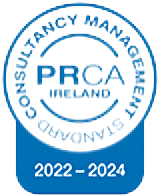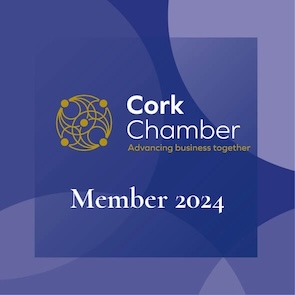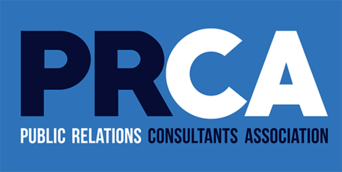Fulfil mission and business objectives with strategic approach to communications
This article was originally published in Strategic
Strategic communications is the effective use of communication by an organisation to fulfil its mission and objectives. It involves the focused planning of communication activity across an organisation – both internally and externally – and, perhaps most importantly, it involves a commitment to a planned, deliberate approach to all communication within an organisation. Implementing a strategic approach to communication should involve input at senior management level and should be rolled out effectively across an organisation.
Communication planning requires setting realistic communication objectives, based on overall business objectives, developing key messaging and identifying key audiences and preparing a communications plan for internal and external communications. Rather than focusing on the tactical roll out of communication activities at the outset, communications planning should be underpinned by a robust strategic rationale. A communication strategy should also allow for regular feedback and assessment, in order to understand how the plans are being received by a range of key internal and external audiences.
Align communication with business objectives
Adopting a strategic approach to communications allows an organisation to consistently and systematically align its internal and external communication with its overall business goals and objectives. This allows senior management to measure the effectiveness of its communications plans in relation to its business objectives on a regular basis. In other words, an organisation’s communications activities should deliver a tangible benefit to the bottom line, supporting the overall needs of the business.
Critical to the success of any communications strategy is senior management support and ‘buy in’ for the activity. It requires commitment, focus and resources and, ideally, this should include a well resourced, dedicated communications team with the appropriate budget allocated to support its activities. Taking the time to assess existing communication activities and channels is essential before developing communication plans. A baseline of current activity should be established at the outset, in order to effectively measure future activity and whether it is delivering the required results. Communication plans should be dynamic and flexible, capable of being assessed and revised on a regular basis, depending on the needs of the organisation and / or its target audiences.
In addition to developing its own communications strategy and plans, an organisation should also understand peer organisations operating within the same sector. This understanding and knowledge allows an organisation to effectively measure its own reputation and brand awareness among a range of key audiences.
Integrated approach across all departments
The role and responsibilities of strategic communications experts can vary depending on the organisation and the experience and expertise of the individual. In a general sense, however, they develop and execute communication strategies and plans designed to align organisational goals and objectives with communication objectives, strategies, messages and channels. This work is critical to the overall success of the organisation and will involve an integrated approach across all departments of an organisation from the CEO and senior management team down. Strategic communications experts work collaboratively with their colleagues to identify and understand their communication requirements, develop relationships with internal and external audiences, engage with key media outlets and respond to media queries. Communications experts are responsible for developing and implementing internal and external communication strategies and plans across the organisation. They liaise regularly with senior management in relation to the communication plans and continuously analyse their effectiveness.
Impact across the organisation
At senior leadership level, effective communication is critically important to helping achieve an organisation’s goals and objectives, can help develop strong brand recognition for an organisation in the marketplace and creates a positive internal working environment. Effective communication strategies also impact positively on an organisation’s reputation – both internally and externally. This benefit directly impacts on existing and potential employees, helping to improve morale and productivity, can impact positively on employee engagement and retention and on an organisation’s ability to attract new talent. These are all critically important considerations for the senior leadership team within an organisation and highlights the positive benefits of developing and implementing an effective communications strategy.
Systematic approach
The purpose of taking a strategic approach to communications, is that it allows for proper planning and a considered approach to implementing communications initiatives, both internally and externally. Given that most activities within an organisation are planned for in meticulous detail, it makes sense that communicating with key audiences is approached in the same systematic way. Not to do so could undermine the organisation’s reputation, could impact negatively on employee morale and engagement and could impact negatively on an organisation’s brand in the marketplace.
Given the fast-paced nature of modern media – both traditional media and social media – communicating in a strategic, planned manner has never been more important. A reactive, or purely tactical, approach to communications in today’s environment increases the likelihood that inaccurate or false information could appear in the public domain. This is particularly important from an issue or crisis management perspective. Organisational issues could arise which haven’t been considered, or discussed at management level, because they haven’t been planned for in advance. This can place significant pressure on an organisation, resulting in reputation damage impacting on internal and external audiences.
As Director of Strategic Services at AM O’Sullivan PR, Tina Quinn brings more than 30 years of experience and expertise in corporate PR, specifically in the areas of strategic planning, crisis and issue management, stakeholder engagement, media relations, project management and event management.
Tina works across a number of large indigenous and multinational clients within the consultancy, with a particular interest in, and focus on, strategic planning. She has been a key member of the team since 1990 and brings significant experience to her work on behalf of clients.
Tina holds the Public Relations Institute of Ireland (PRII) Diploma in PR. She is a member of the Public Relations Institute of Ireland (PRII) and she joined the Board of Good Shepherd Cork in 2020.










